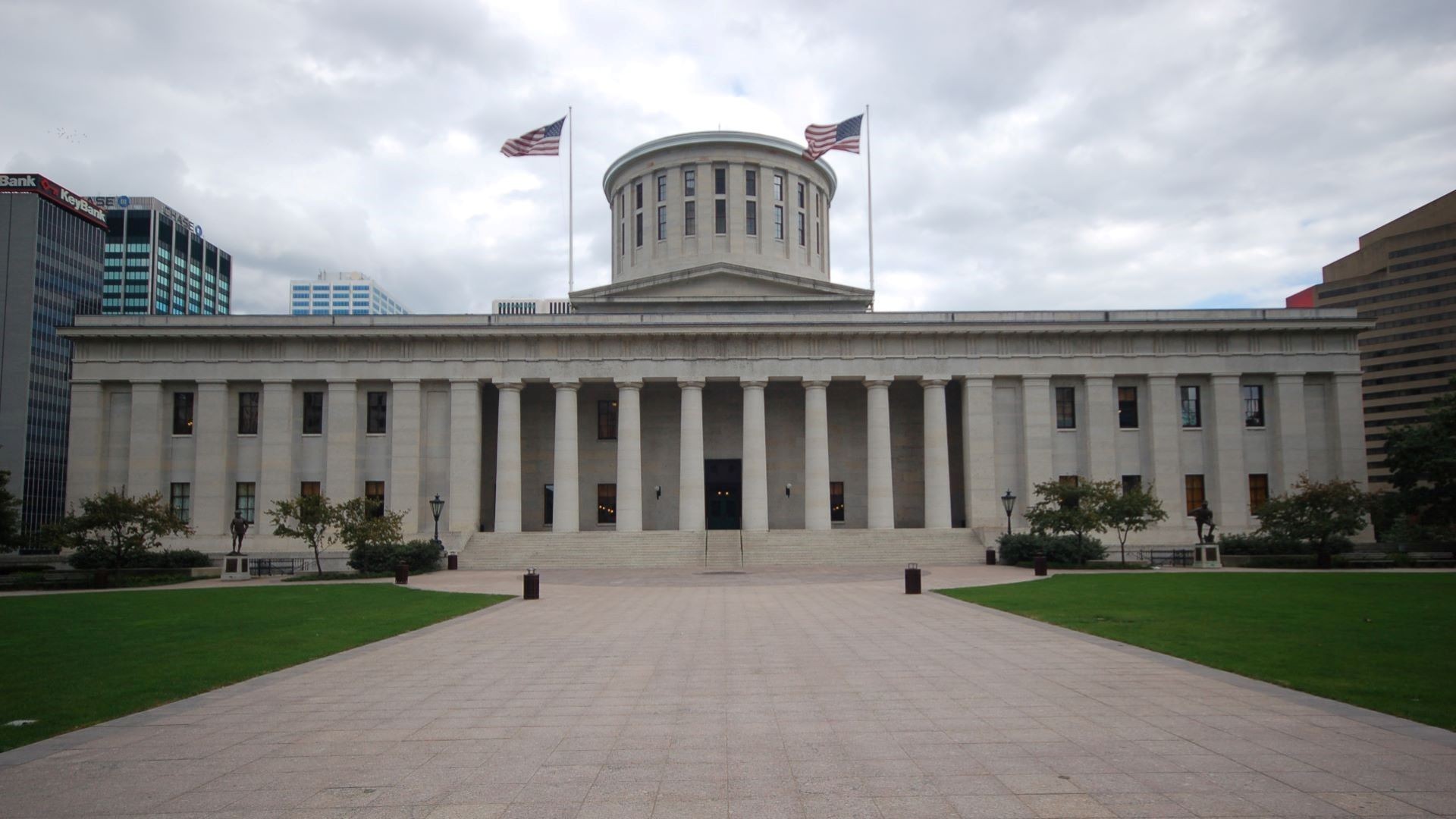
The Ohio Statehouse | Image courtesy of the Capitol Square Review and Advisory Board
Editors Note: This article is an update to the original post, published on June 24, 2022.
The United States high court overturns historic women’s reproductive healthcare cases including Roe v. Wade, in Dobbs v. Jackson case decision leaving the legal matter of abortion to states. Ohio reinstates Heatbeat Bill.
Supreme Court decision
Late this morning the U.S. Supreme Court ruled on the court case Dobbs v. Jackson regarding reproductive health and state laws on abortion procedures.
According to the Merriam-Webster dictionary, an abortion is the termination of a pregnancy, whether it be a spontaneous miscarriage or an induced termination.
In the 1970s the Supreme Court considered a series of cases regarding women’s reproductive health and abortions including, Roe v. Wade and Planned Parenthood v. Casey. At the time via these cases, the Court decided that abortion was a legal procedure protected under the U.S. Constitution.
Both cases are cited and considered in the Dobbs v. Jackson decision. This recent Court decision overturned the rulings in both cases and gives individual states the power to determine abortion laws.
“The Constitution does not confer a right to abortion; Roe and Casey are overruled, and the authority to regulate abortion is returned to the people and their elected representatives,” the decision states.
Opinions of the Justices
Concurring
Six Justices including Chief Justice John Roberts and associate justices Clarence Thomas, Samuel Alito, Neil Gorsuch, Brett Kavanaugh and Amy Barrett, concurred in the decision.
Justice Thomas explains in his opinion how abortion is not protected under the Due Process Clause, better known as the 14th amendment, and therefore it can not be covered under the constitution.
“The purported right to abortion is not a form of ‘liberty’ protected by the Due Process Clause. Such a right is neither ‘deeply rooted in this Nation’s history and tradition’ nor ‘implicit in the concept of ordered liberty,’” Thomas’ opinion states.
Dissent
Three Justices including Stephen Breyer, Sonia Sotomayor and Elena Kegan do not agree with the Court’s decision and maintain that abortion is a private matter in which the government should not interfere.
“Roe held, and Casey reaffirmed, that the Constitution safeguards a woman’s right to decide for herself whether to bear a child. Roe held, and Casey reaffirmed, that in the first stages of pregnancy, the government could not make that choice for women,” Breyer, Sotomayor and Kegan’s joint dissent states.
Ohio laws
The decision in Dobbs v. Jackson now leaves the matter of abortion to states. Some states already have laws limiting abortion procedures and sanctions on abortion providers.
Passed in 2019, Ohio Senate Bill 23, better known as the Heartbeat Law, lays out the legal obligations of a healthcare provider before performing an abortion and prevents the procedure from occurring if a heartbeat is detected. Later in 2019, an injunction was filed against this law and prevented it from taking effect.
After the Dobbs v. Jackson decision, Ohio officials like Attorney General Dave Yost expressed interest in overturning the injunction against the Ohio Heartbeat Law.
“We filed a motion in federal court moments ago to dissolve the injunction against Ohio’s Heartbeat Law, which had been based on the now-overruled precedents of Roe and Casey,” Yost wrote in a Tweet on June 24.
Friday evening, Yost posted another tweet announcing the suspension of the injunction against Ohio’s Heartbeat Law.
The law explains how abortion procedures are banned after six weeks and or after a fetal heartbeat is detected. The suspension enables the law to go into effect.
“ The Heartbeat Bill is now the law,” Yost tweeted.
The full effects of the Supreme Court’s decision are still unknown and ongoing.
